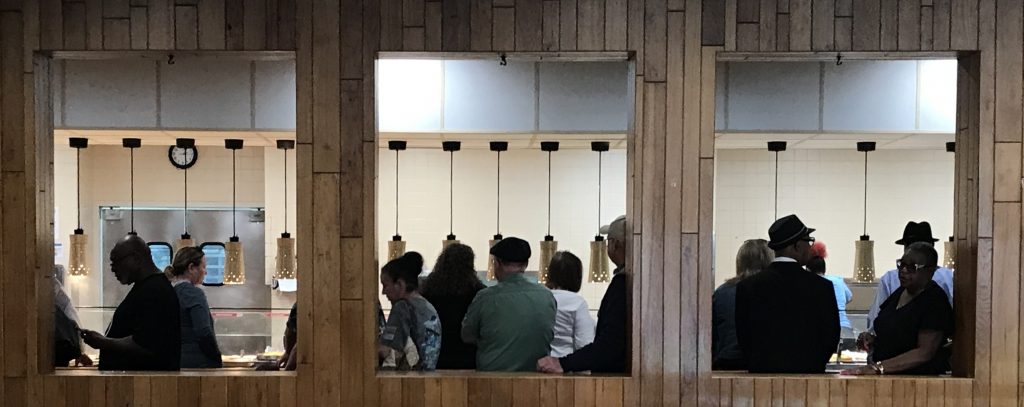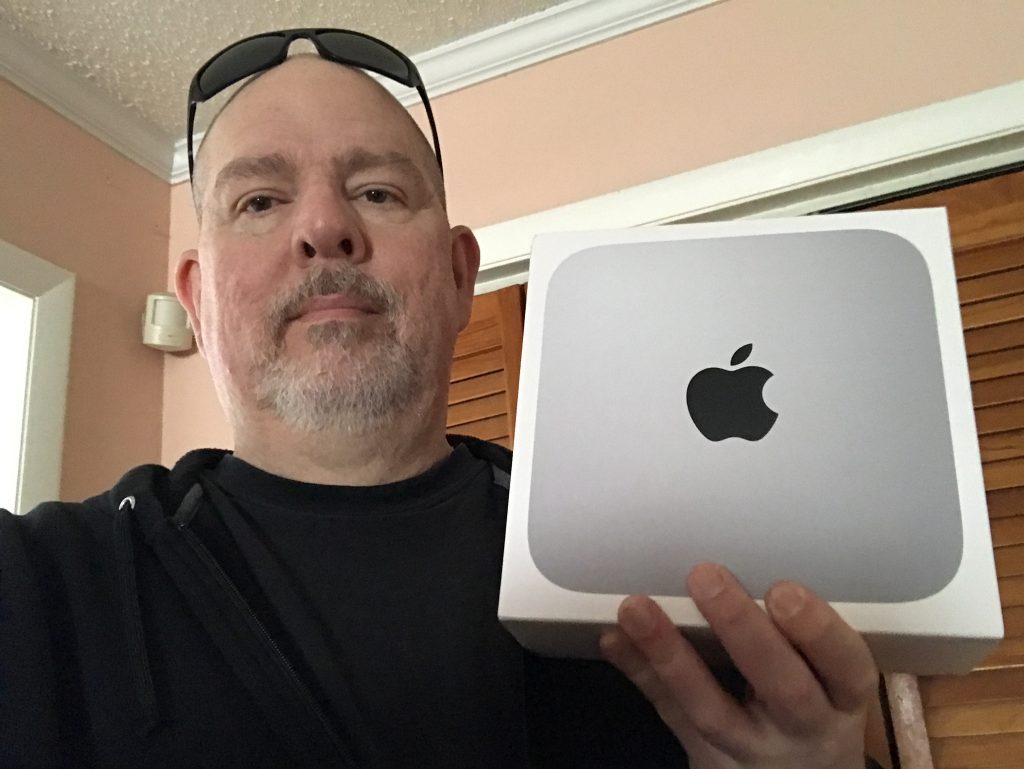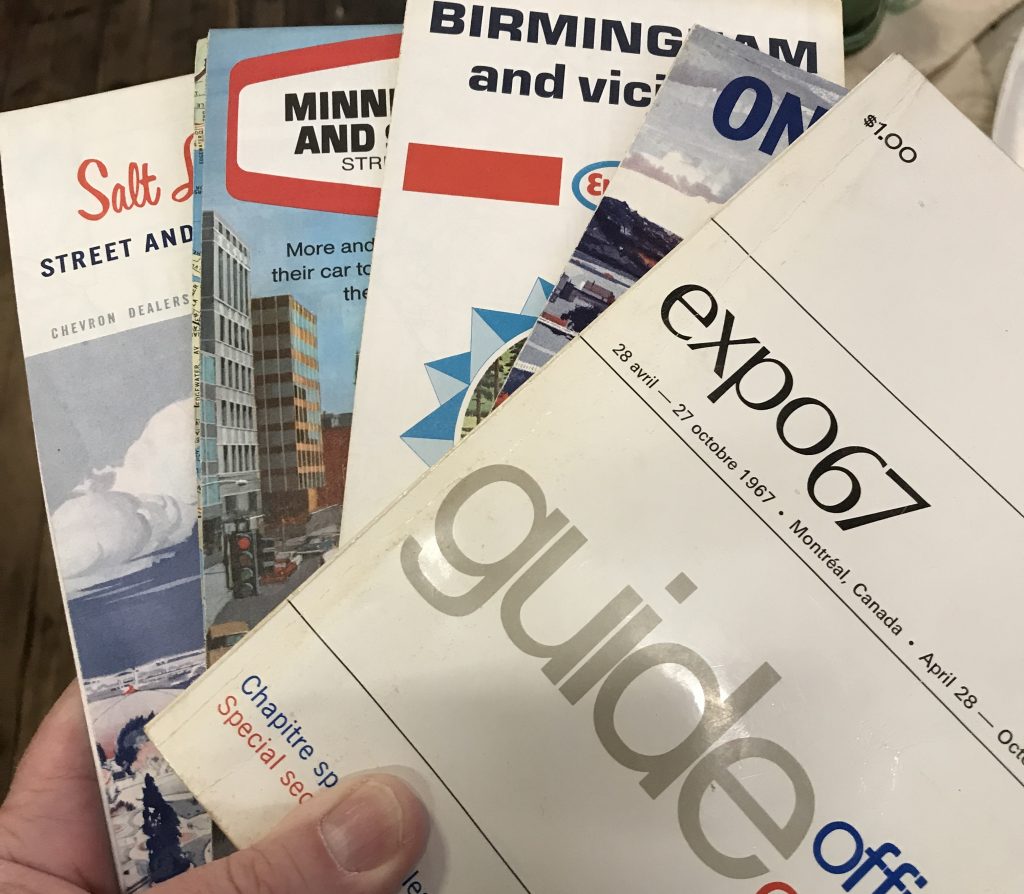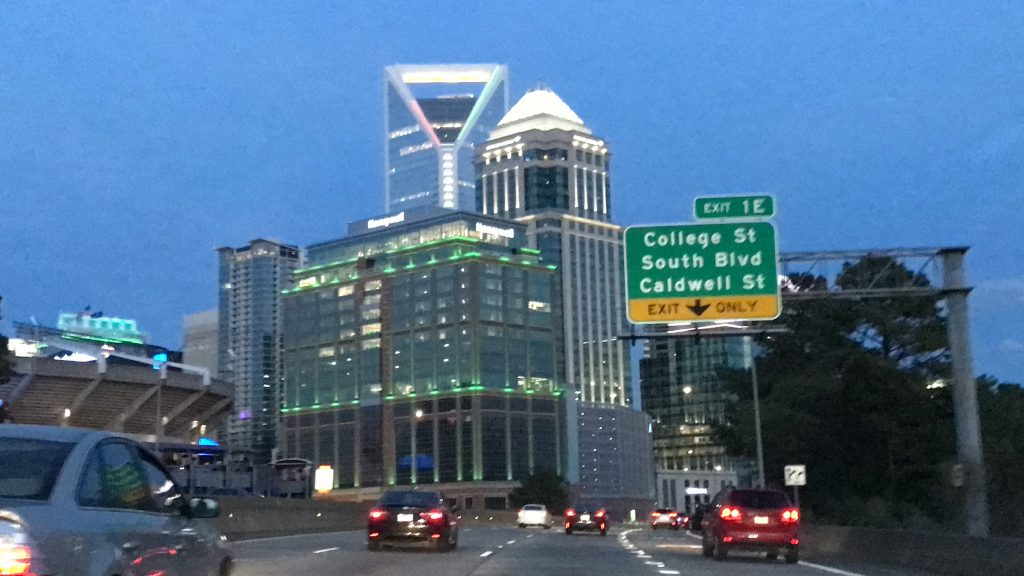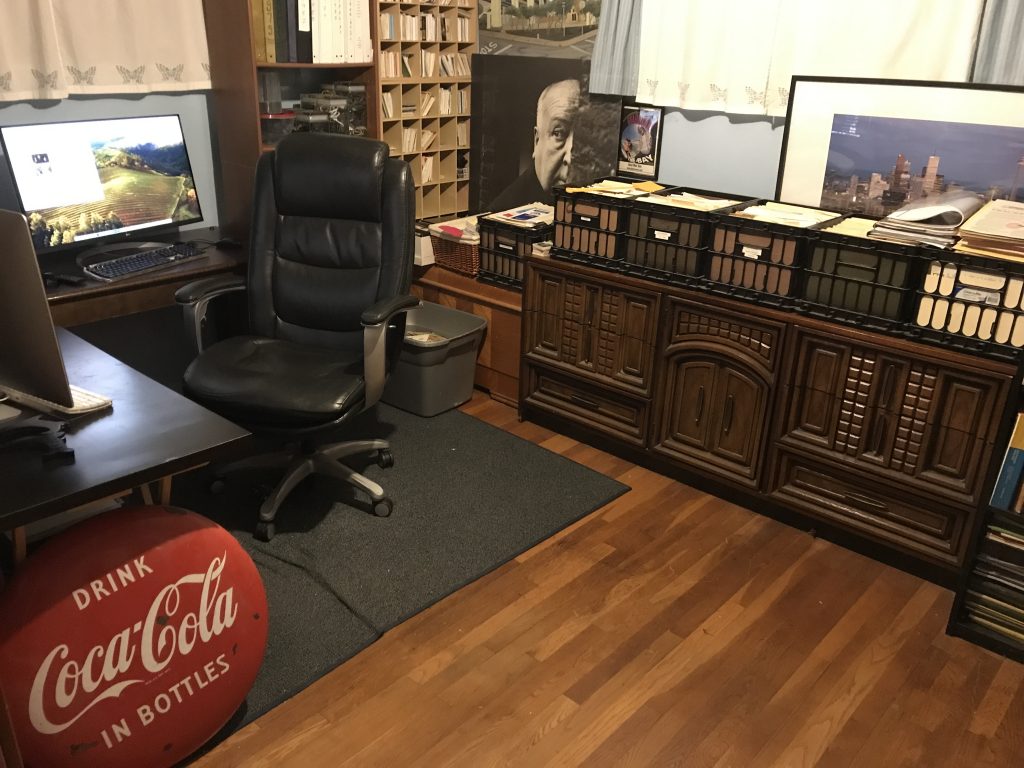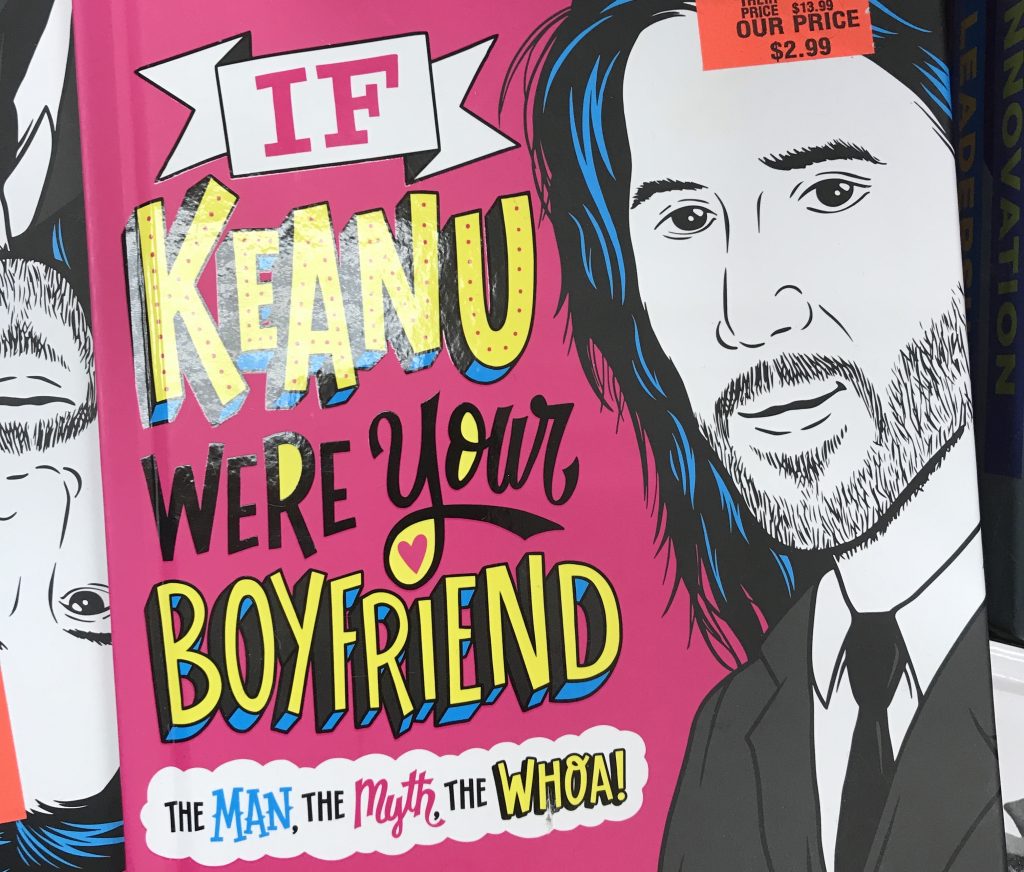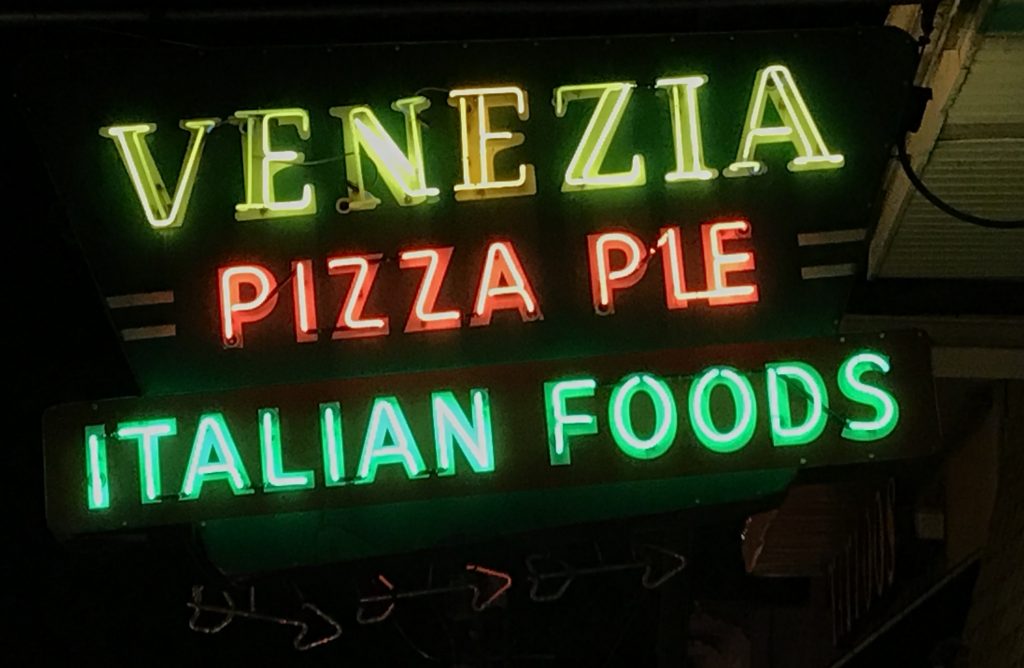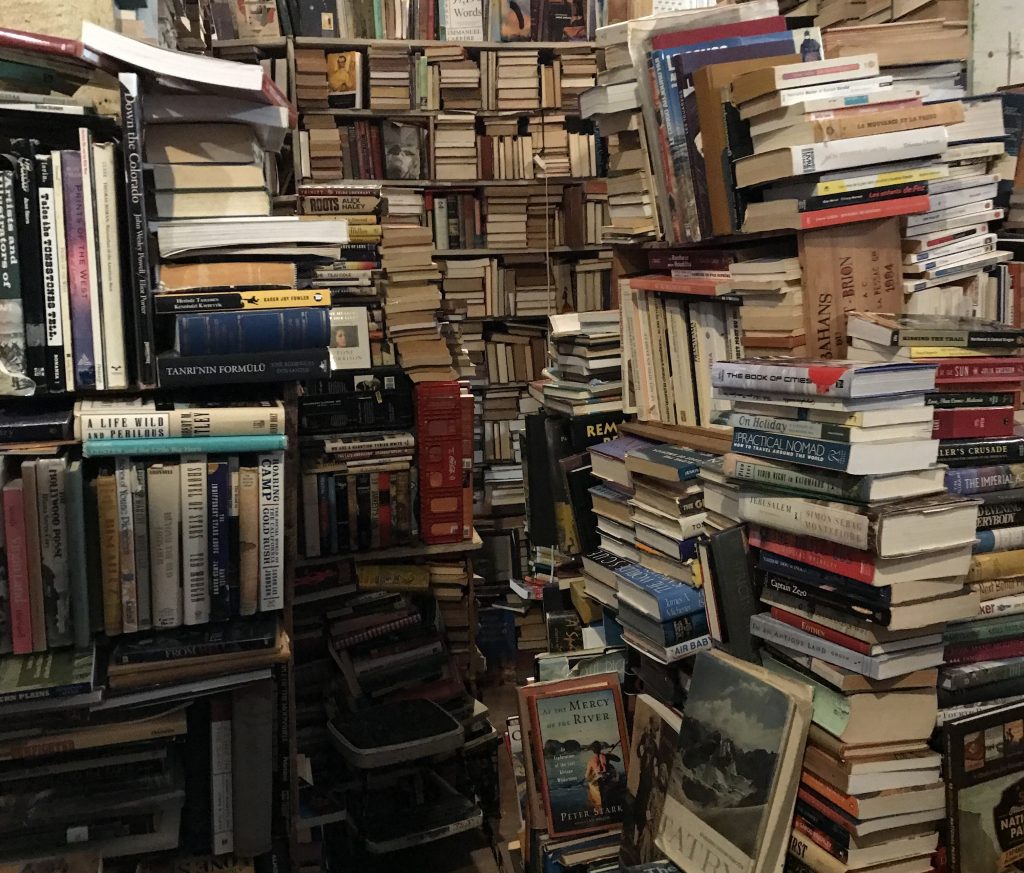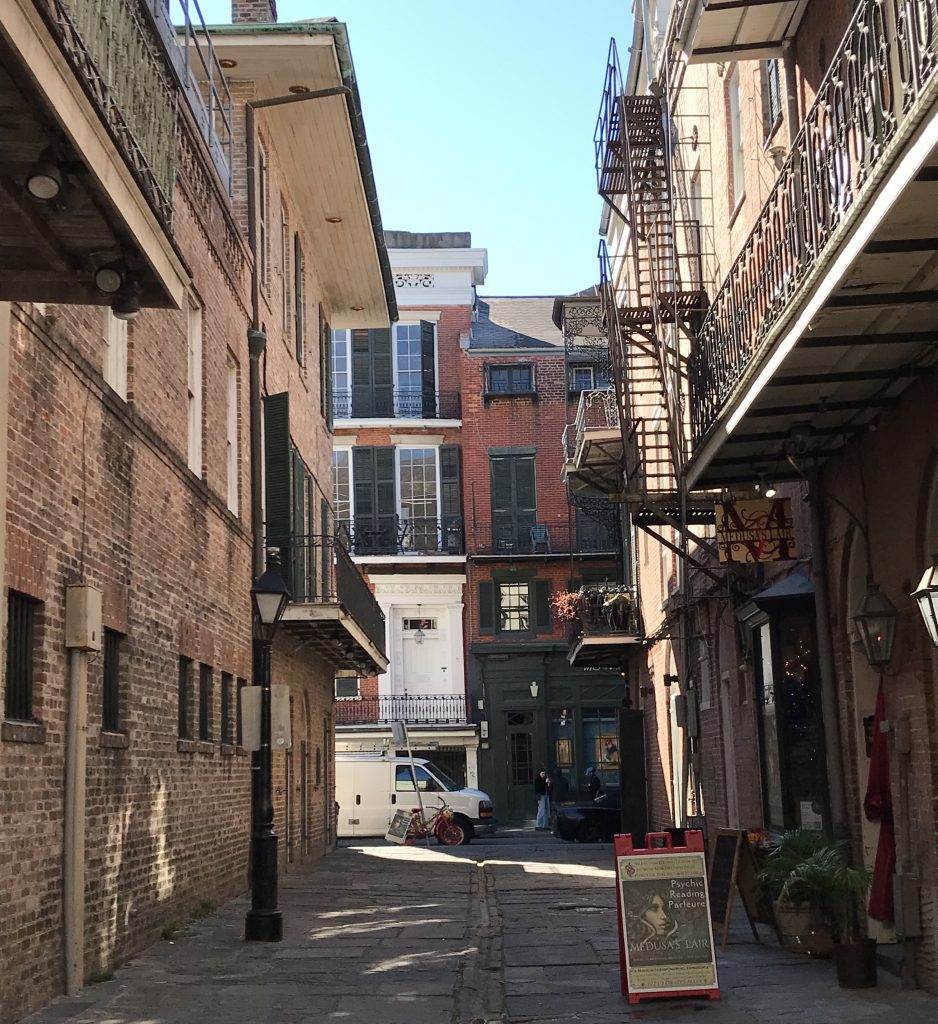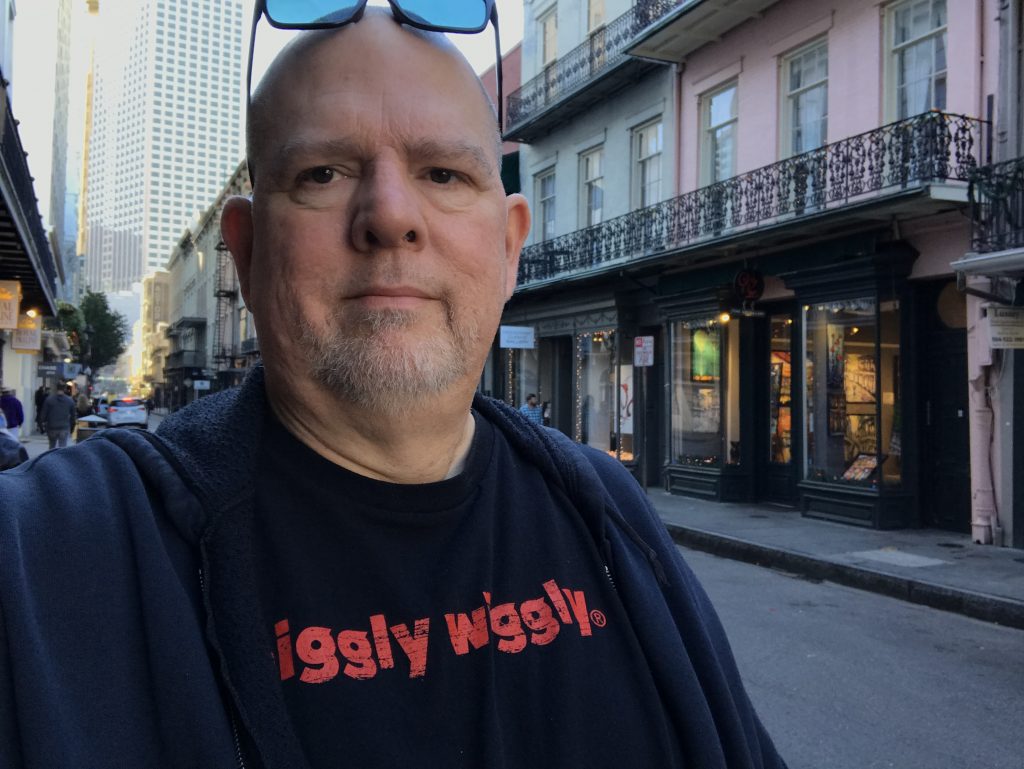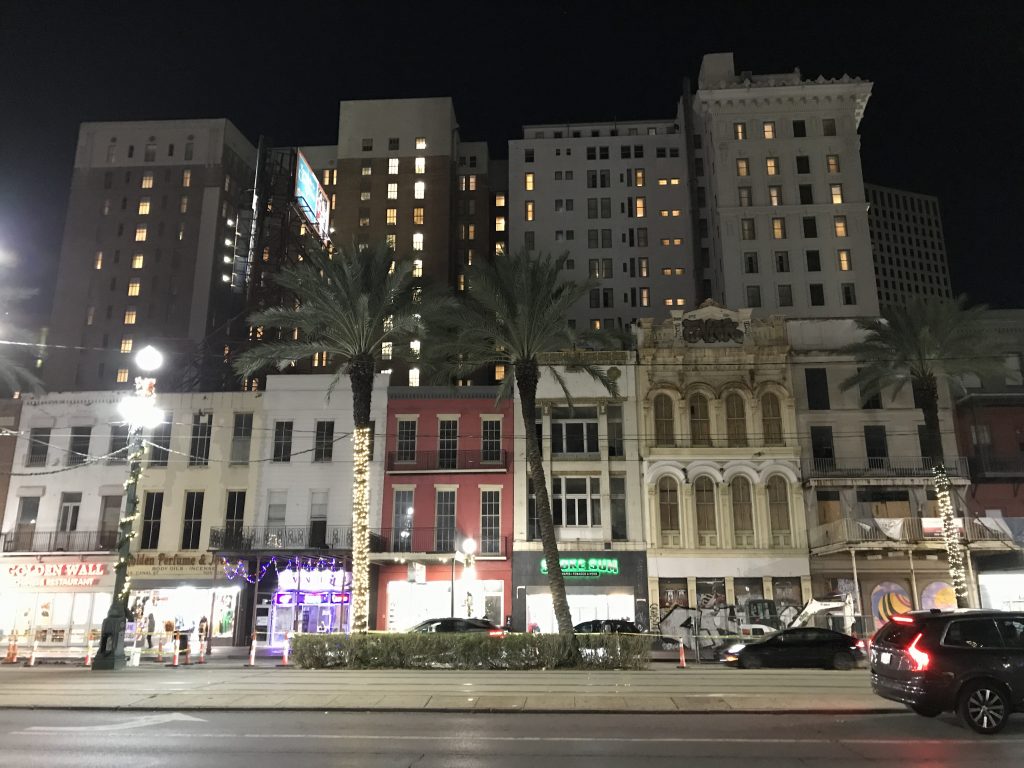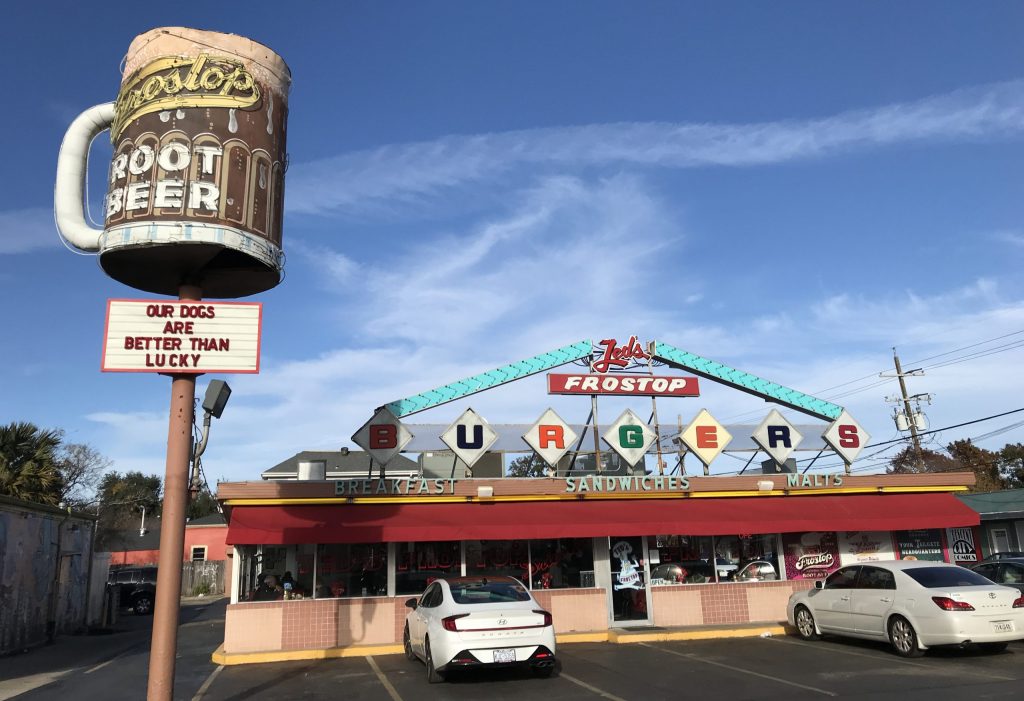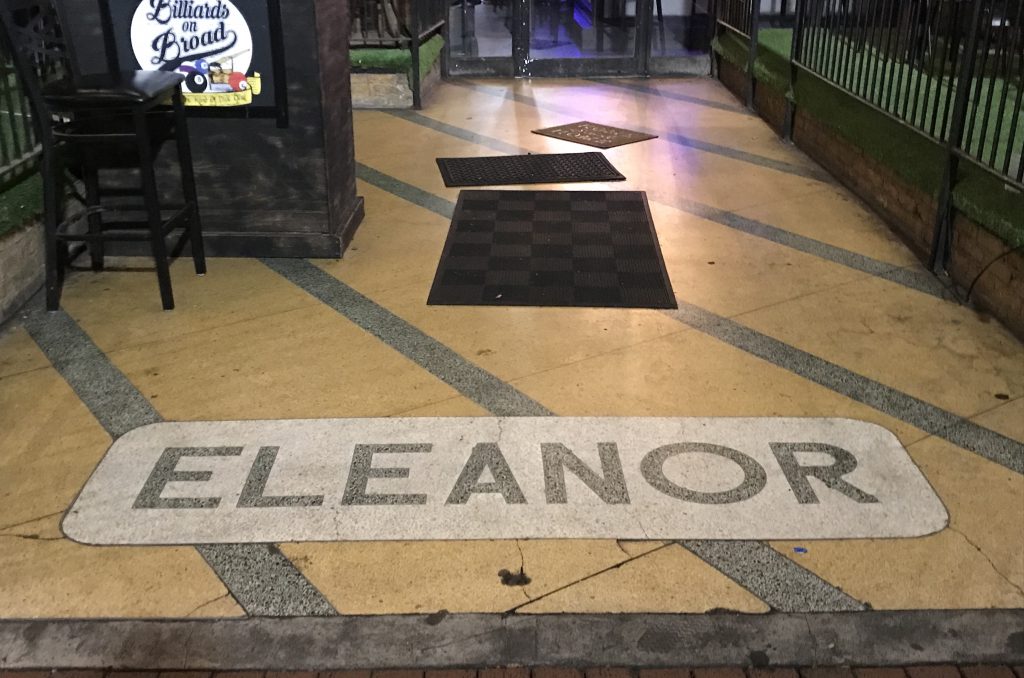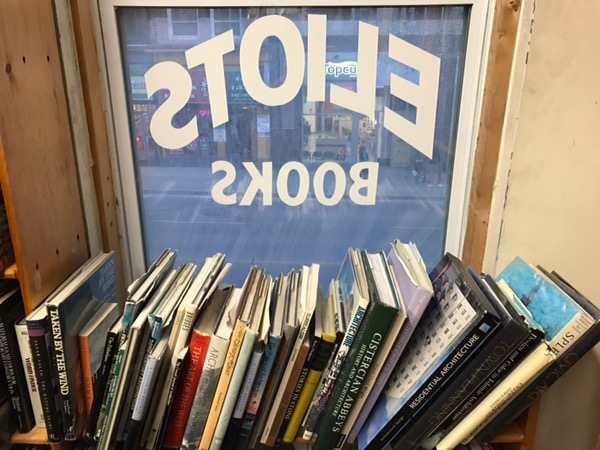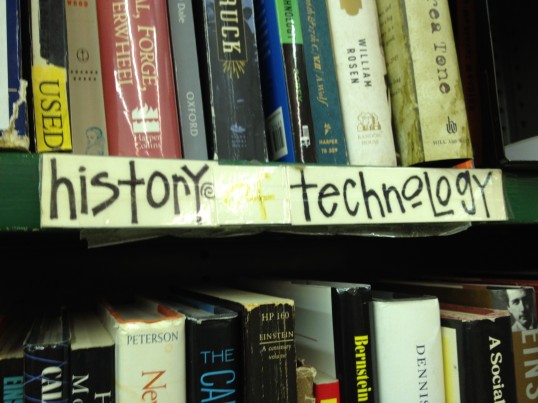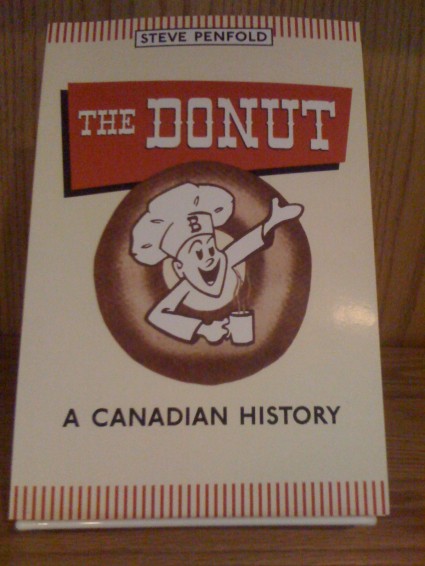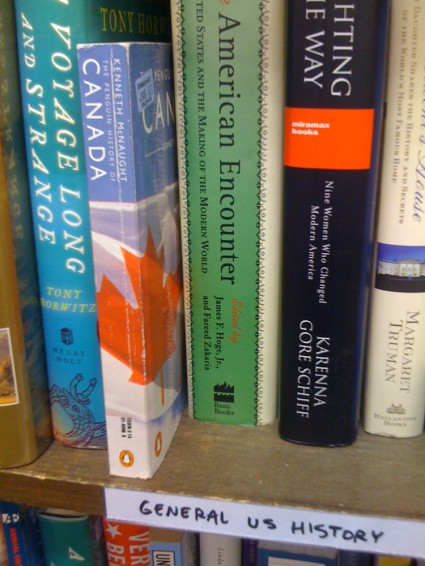Category: Books
What December 2023 looked like
A productive pandemic
When I get overwhelmed or start wondering where the last year went, I remind myself that since March I have:
- Co-authored a book that should be published later this year
- Migrated one of the largest library digital collections in the state to a new content management platform (link later)
- Participated in the salvation of American democracy
- Added a bunch of new cities to Groceteria
- Eighty-sixed Facebook
- Rebuilt a friendship that had been dormant for almost thirty years
- Watched at least a hundred vintage episodes of “What’s My Line?”
- Become disturbingly conversant in the MODS metadata schema as well as several new XML tools
- Supervised three student capstones and independent studies
- Managed to avoid getting a COVID-related illness
- Done a few pretty good media interviews (radio, national magazine, well-trafficked blog)
- Read many good books (and bought way too many more)
- Never hoarded toilet paper and also never run out of same
- Managed three big grant projects simultaneously and remotely
- Only gained about five pounds and actually ended up with better labs than last year
- Stayed reasonably sane
Try it yourself. It helps!
Reading is good
For the record, by “reading” I mean “reading more than just the inflammatory headline and then sharing it to display your sense of moral outrage and to ‘prove’ your point.”
I came along at a particularly lucky time in American history. Despite the fact that i grew up in a small-to-medium city in a moderate-to-conservative region, I always had access to good reading material and usually took advantage of that fact. It’s what helped me survive my teen years and make it to my senior year in high school (1982), which was the point where I realized for the first time that I could successfully invent the person I wanted to be and that I deserved better than the losers I’d been hanging around with up to that point. By the semester I graduated, I’d finally seen that it was OK to be smart and to have friends who were smart too.
A decade or so later, when Borders and Barnes & Noble became major retail forces, to criticize the way these chain bookstores were destroying local, independent stores. I was very conflicted about this because I remembered growing up in a place that didn’t really even have viable independent stores that sold the kind of books i wanted to be reading. Most of the independent stores around here were either religious in nature or were of the “books and stationery” variety, which meant that they sold primarily inconsequential and uncontroversial titles.
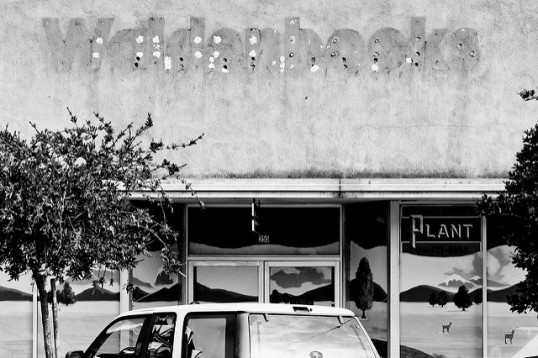
(Waldenbooks, Thomas Hawk, CC BY-NC 2.0)
In fact, it was the Waldenbooks branch at the mall where I found books about cities and about subcultures, and (gasp) books and magazines that told me it was OK to be the homosexual I was…ahem…practicing to be. Without the big chain store and its broader perspective, there’s no telling how long I would have had to wait to read messages that challenged the everyday bullshit of the early Reagan-era South. It’s all well and good to criticize the chain bookstores when you live in a big city located in a region with options. The chain were the only option here at the time, and I’d argue that stores like Borders and Barnes & Noble were extremely important in providing this function for the generation who came along in the pre-Internet 1990s.
Of course, the library was important as well. In the early 1980s, the Greensboro Public Library had a surprisingly large collection of titles from among the “gay liberation” classics of the early 1970s. When I look back at them now, I find a lot of this stuff sort of cringeworthy (though many of these books presented a much more open-minded and diverse notion of what a gay person could be than much pf the “gay culture” crap that followed) but it was precisely what I needed to be reading at the time. It goes without saying where this love for the library took me, although it was a rather long and circuitous route.
Reading (and realizing that doing so was a good thing) was also what prompted me to seek out used book stores like the original Browsery, which was on the second floor of a dumpy building near UNCG and only seemed to be open at night, and newsstands like the International in Charlotte, tucked away in the back of a mall hidden in an apartment complex off Providence Road. It was harder to find the things you needed then, but it was not impossible…assuming you cared enough to bother.
I’m sort of babbling and don’t really have much of a point here, I guess, other than to reiterate that I was luckier than a lot of people my age and older who grew up in less urban and bookish areas. My parents did not read a lot of books but did read a lot of everything else, so they were good role models. Being in a sort of college town (though not a college-dominated town) also helped. Having access, though, and the desire to seek things out, was the key.
There’s a lot of access now too, which is amazing and wonderful, but I wish there were more propensity to filter out the crap and be selective in a world with a major signal-to-noise deficit.
Books. So many books.
The shame of unfashionable books
Granted, I can be as pretentious as the next guy and the new cover is not my cup of tea either. I also fully understand the issues of how mass-market retailers manipulate the publishing industry. Maybe Mr. Cassem’s comments were tongue in cheek, but the last paragraph in this article just irritated me:
As to whether the new, DiCaprio-ed edition of “Gatsby” would be socially acceptable to carry around in public, Mr. Cassem of McNally Jackson offered a firm no. “I think it would bring shame,” he said, “to anyone who was trying to read that book on the subway.”
As a librarian I’m pretty excited at the prospect of thousands of new readers being introduced to a piece of classic literature–in WHATEVER format. To suggest that people should be ashamed to be seen reading a great book because it has a flashy cover or was purchased in the “wrong store” is just ludicrous and makes me want to buy my books from someone with a touch less attitude.
Order through chaos
It’s hard not to love a bookstore with a “history of technology” section.
More random stuff for a Saturday morning, all of which would probably be more appropriate to some closed-system social networking platform, but fuck that:
- This might explain so may aspects of my life, from my career choice to why my
marriagestate-unsanctioned relationship failed. And why I always crave cookies but often don’t find them satisfying. Or it might not. (Thanks, Dan C.) - Much true, this. And it’s somehow related to the fact that I find knowing lots of stupid Excel tricks has helped me more as a librarian than any other tech skills.
- I don’t shop at Penney’s (I mean “JCP“) as much as I used to, but I could start again, especially if it would piss off these morons.
Seems like…
Maybe it’s coming back
My attention span, that is. During and after grad school, I feared I was losing the ability to read books for pleasure (I may even have written about this, but I can’t be bothered to look). I seem to have regained it in the past few months, though, and I’ve actually killed off three books in the last two weeks. This can only be a good thing.
This one, spotted in the “new arrivals” section at work is strangely tempting:
Speaking of random photos, look over to the right. There’s a new feature here (OK, on flickr, really) that I’m calling Dailystream. It’s pretty much a “photo a day” kind of thing, which is not really innovative or exciting at all, except to me because this time I’m doing it rather than someone else.

